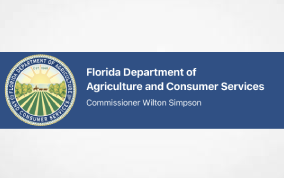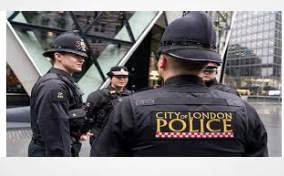~ Slate of priorities includes measures he has advocated for years and additional steps to reduce brutality and abuses of authority, and increase transparency, accountability, justice, and equality ~Says the release
RICHMOND —Ahead of the upcoming special session of the General Assembly, Attorney General Mark R. Herring today outlined his priorities for criminal justice and policing reforms that will reduce brutality and abuses of power by law enforcement, increase transparency, accountability, justice, and equality, and address disparities throughout the criminal justice system from policing to re-entry.
“Virginia cannot have different systems and standards of justice depending on the color of a person’s skin,” said Attorney General Mark Herring. “Ours must be a Commonwealth where justice, equality and opportunity are guaranteed for each and every person, no matter where they live, what they look like, how they worship, who they love, or how much money they have.
“We know that African-Americans and Virginians of color experience the criminal justice system differently at every level from policing through prosecution and into re-entry. It is documented and undeniable. That’s a hard thing to admit, but it’s even harder to experience. It means that we are failing in one of our most foundational responsibilities as a country and a Commonwealth: to ensure that all men and women are truly treated equal.
“This moment has given us an opportunity like none I can recall in my lifetime to truly focus on how we create a criminal justice system that meets our public safety goals in a way that ensures justice and equality for all. Those of us who have been frustrated by the pace of change in previous years now have the benefit of open minds and a broader recognition of the change that is needed in this country to ensure that Black lives matter, and that the criminal justice system is oriented around justice and safety, not simply control or oppression.”
In the upcoming special session, Attorney General Herring will be supporting the following measures:
Police Reform:
- Enable the Attorney General of Virginia to conduct “pattern and practice” investigations
- Modernize, standardize, and elevate the rigor of police training
- Department of Criminal Justice Services should be required to develop within the year a new basic training curriculum in conjunction with the Office of Attorney General
- Current law enforcement officers must have 21st century policing skills included in their annual in-service training curriculum
- Make it easier to remove bad officers from the law enforcement profession
- Expand police decertification criteria to include misconduct, not just criminal convictions.
- Establish a more robust database of officer discipline, terminations, and decertification.
- Ban rehiring of officers who are fired for misconduct or excessive force, or who resign during an investigation into misconduct or excessive force.
- Create a “duty to intervene” for law enforcement officers.
- Ban or limit dangerous, unnecessary, and potentially deadly police tactics
- Empower localities to establish citizen review panels
- Require the use of body worn cameras by all law enforcement officers
- Require law enforcement agencies and prosecutors to engage an independent agency or Commonwealth’s Attorney to conduct investigations and make prosecutorial decisions
Criminal Justice Reform:
- Cash bail reform
- Expanding opportunities for record expungement and simplifying the process
- Continued momentum toward legal, regulated adult use of cannabis and resolve past convictions
“For many months now, I have been waiting for a response from the Trump Administration’s Department of Justice to my request for an independent investigation into one of my local police departments. But for the return receipt requested signature card, I didn’t even receive an acknowledgement to my letter. If the federal government isn’t going to provide this oversight when police departments may be violating citizen’s rights, then there needs to be a state backstop that can conduct these necessary investigations. It is for these reasons, I will introduce a bill in the Special Session of the General Assembly to enable the Attorney General of Virginia to conduct “patterns and practices investigations of local police departments,” said Senator Louise Lucas.
“Since 2017 the Trump Administration’s DOJ has refused to address systemic failures and investigate possible unconstitutional practices in law enforcement agencies. With that in mind, the Attorney General needs to have the authority to investigate and resolve patterns or practices of unconstitutional policing, such as use of excessive force, illegal searches, or biased policing,” stated Delegate Alfonso Lopez. “This legislation finally gives the Attorney General the authority to investigate, subpoena, and bring appropriate actions in court to ensure compliance with constitutional policing standards.”
In the area of police reform, Attorney General Herring will be actively working to ensure passage of the following bills and policies:
Enable the Attorney General of Virginia to conduct “pattern and practice” investigations of law enforcement agencies to identify and put a stop to unconstitutional practices, such as patterns of excessive force, illegal searches, biased policing, or other unconstitutional practices. For decades the U.S. Department of Justice was a reliable partner in identifying and ending unconstitutional policing practices, often through negotiated agreements for reforms, called “consent decrees,” in cities such as Chicago, Baltimore, and Ferguson, MO. Under the Trump Administration the DOJ has explicitly walked away from this responsibility, making it more important for state attorneys general to have this important tool. In June, Attorney General Herring asked Congress to expand federal law to give him and other state attorneys general clear statutory authority to conduct patterns and practice investigations. The U.S House of Representatives included this authority in the “George Floyd Justice in Policing Act” which passed the House on June 25, 2020.
Modernize, standardize, and elevate the rigor of police training to include mandatory training on implicit bias, racial bias, crisis intervention, de-escalation, hate crimes, violence interruption, and other 21st century policing skills. Because of the immense power placed in the hands of law enforcement officers, the Commonwealth must treat the law enforcement profession as a highly-skilled and specialized field that requires both proper training and high standards.
In order to ensure proper, 21st century training for Virginia law enforcement officers:
- The Department of Criminal Justice Services should be required to develop within the year a new basic training curriculum in conjunction with the Office of Attorney General that includes implicit bias, racial bias, crisis intervention, de-escalation, hate crimes, violence interruption, and other 21st century policing skills.
- Current law enforcement officers must have 21st century policing skills included in their annual in-service training curriculum. In 2015, Attorney General Herring sponsored a series of five regional “train-the-trainer” conferences to promote the wider adoption of implicit bias training, de-escalation, and other 21st century policing skills. The training officers from more than 50 law enforcement agencies participated, then went back to their departments and taught their colleagues, making this one of Virginia’s largest-ever investments in 21st century policing skills.
Make it easier to remove bad officers from the law enforcement profession. The Commonwealth should hold its law enforcement officers to the highest standards because they are empowered to make life-and-death decisions and other serious decisions that could dramatically affect the life of a Virginian. Virginia must therefore ensure that it removes from the profession any individuals who prove themselves unworthy or incapable of bearing such responsibility.
Virginia should:
- Expand police decertification criteria to include misconduct, not just criminal convictions. Currently an officer may only lose their law enforcement officer certification for a criminal conviction. Misconduct that may not rise to the level of criminal conduct must be a basis for decertifying officers.
- Establish a more robust database of officer discipline, terminations, and decertification. If an individual has proven they are not capable of exercising law enforcement authority in a safe, fair, impartial, and constitutional way, they should not be able to conceal that information from a department or simply switch departments and continue their career.
- Ban rehiring of officers who are fired for misconduct or excessive force, or who resign during an investigation into misconduct or excessive force. No law enforcement officer should be able to hide behind a resignation to avoid accountability and continue their career when they have shown they may not be capable of serving in law enforcement.
- Create a legal obligation for “duty to intervene” for law enforcement officers when they see another officer using excessive force, when it’s safe to intervene, and regardless of intervention they must immediately report the incident to their supervisors.
- Ban or limit dangerous, unnecessary, and potentially deadly police tactics like chokeholds, strangleholds, and no-knock warrants.
- Empower localities to establish citizen review panels with necessary investigative authority and, where possible, provide state-level support.
- Require the use of body worn cameras by all law enforcement officers to ensure a complete and accurate account of any citizen-officer interactions.
- Require law enforcement agencies and prosecutors to engage an independent agency or Commonwealth’s Attorney to conduct investigations and make prosecutorial decisions on officer-involved incidents that may constitute criminal conduct, including use of force or killings by law enforcement officers.
Attorney General Herring will also be working for the passage of the following bills and policies to strengthen our communities and reduce racial and economic disparities through reform of Virginia’s criminal justice system:
- Cash bail reform. Attorney General Herring has long supported significant reforms to Virginia’s cash bail system which, in its current form, can lead to unjust outcomes where dangerous people with money can go free while nonviolent people sit in jail for days, weeks, or months because they can’t afford to pay bail. This can cause a person to lose their job, housing, and support systems. Attorney General Herring will be pushing for Virginia to move away from the use of cash bail as its default for low level offenses and instead expand pretrial services that have proven to be effective and cheaper.
- Expanding opportunities for record expungement and simplifying the process. Attorney General Herring has also advocated for expanding record expungement opportunities and simplifying the process to build a more just and fair criminal justice system and to address the disproportionate burden that criminal convictions place on African Americans and people of color. Virginia is one of the nation’s least forgiving and most restrictive states for individuals who have earned the opportunity to have old convictions and charges expunged from their records. While many other states have some form of a “Clean Slate” law, the Commonwealth appears to be one of just ten states that does not offer any sort of judicial “record closure” for any adult convictions, nor does it offer any automatic expungement for those who are eligible for expungement. This means that a relatively minor charge or conviction, like marijuana or alcohol possession, can become a permanent stain that limits a Virginian’s job, educational, and housing opportunities.
- Continued momentum toward legal, regulated adult use of cannabis and resolve past convictions. During the 2020 General Assembly Session, Attorney General Herring helped successfully decriminalize possession of small amounts of marijuana, but believes Virginia needs to continue on to full legal, regulated adult use as quickly as possible, because the social and human costs of prohibition fall disproportionately on African Americans and people of color. In 2018, there were nearly 29,000 marijuana arrests, and the Virginia Crime Commission found that from 2007 to 2016 46% of all individuals arrested for first offense marijuana possession were African American, despite being just 20% of Virginia’s population.
In addition to these policing and criminal justice reform priorities, Attorney General Herring supports measures that require officers to deescalate situations, and to better utilize specialized resources instead of police officers to respond to non-public safety situations, such as addiction, a person experiencing homelessness, or a mental health crisis.

















